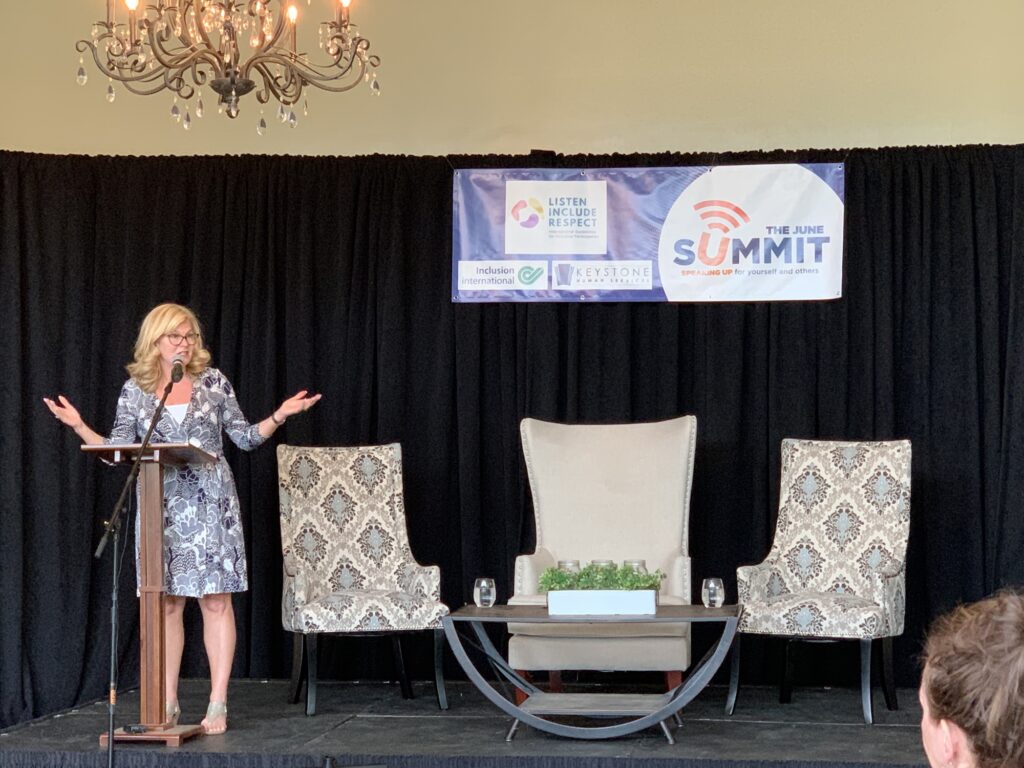“Inclusion isn’t something we do. Inclusion is who we are,” said Leah Klish, Director of Operations Education for KHS and the evening’s emcee.
With our identity wrapped in inclusion, Keystone Human Services has begun a journey to weave the Listen Include Respect guidelines into the fabric of what we do every day. The threads of this initiative will stitch together everything we do and enhance our work.
We began at last year’s June Summit shortly after the launch of the Listen Include Respect guidelines at the United Nations Conference of States Parties to the Convention on the Rights of Persons with Disabilities. We formed a cross-organizational steering committee, including people with disability, Direct Support Professionals, KHS’s Advocacy Coordinator, and KHS leadership. Our goal has been to examine what good support looks like for people with disability and learn how we can be more inclusive.
The central thread that has come out of our discussions over the past year is that an organization cannot be truly inclusive without leadership and inputs from people with disability.
This kind of partnership means shifting mindsets and moving away from the traditional “caretaking” view of services for people with disability. How can we better support people to advocate for themselves and access their rights? How can we create services, which are usually highly regulated, that are conducive to that and reflect the voices of people with disability?
To even begin to answer these questions, it’s essential to listen to, respect, and include people with disabilities right from the beginning.
“Respect means to me treat others the way you want to be treated,” said Destiny Smith. “Basically the golden rule because if you don’t respect people, people won’t respect you back and they’ll treat you the same way that you treat them.”
As Tia said during the June Summit, it’s a partnership. People with disabilities support Direct Support Professionals as much as DSPs support them. Everyone works together as a team.
“Every human has a will and a preference, and our job is to understand that will and preference, respect it, and partner with people to implement it,” said Connie Laurin-Bowie, Executive Director of Inclusion International during her keynote address at the June Summit. The right to legal capacity – Article 12 of the Convention on the Rights of Persons with Disabilities – is central to human rights. All other rights are irrelevant if they’re not driven by people with disability.
“When I found my voice, I was able to let them know that I can do this, this, and this if it’s explained well and broke down into easy accomplishments,” said Jordan Beasom.
This work is a partnership, and it will take all of us to learn how to listen to each other, encourage each other to speak up, learn, and grow together to create a more inclusive organization, community, and world. This initiative has only just begun. We encourage you to pick up these threads with us and learn how you can weave Listen Include Respect into everything you do. To learn more or get involved, contact the Listen Include Respect Steering Committee at [email protected].


